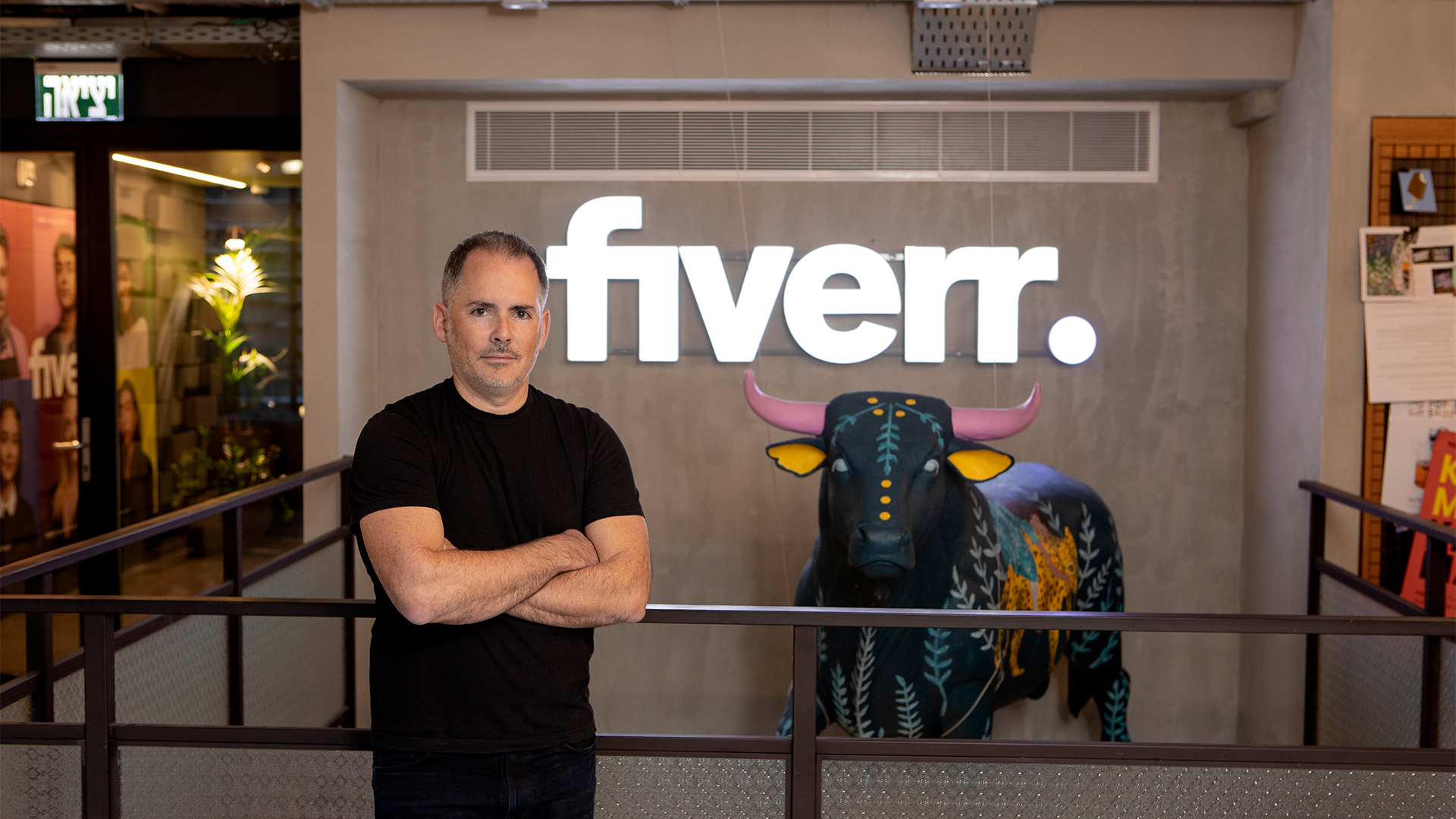Bridging the UK's digital skills gap
The lack of STEM skills in the UK is a serious challenge to business, but not an insurmountable one

Technology has had a transformational effect on the way we work today and new innovations promise an even brighter future. But there's a dark cloud on the horizon. A serious digital skills gap is emerging, prompting fears that a lack of relevant talent could stymie UK economic growth in the future.
According to research from the Institution of Mechanical Engineers, backed by Tata, British educational institutions are failing equip their students with the skills they will need to become productive members of the future workplace. It found that 63% of engineers believe the skills shortage will worsen over the coming years and that 1.8 million engineers will be needed by 2025.
Of course, the skills shortage isn't just affecting engineering it's a similar picture across the whole technology industry. According to a study conducted by the British Chambers of Commerce, this growing epidemic is affecting productivity within companies, with three in four firms profiled saying they're struggling with digital skills shortages. There are also those in the industry who believe the UK's exit from the European Union will add further fuel to the fire.
While there's certainly a lot to worry about, change is beginning to happen. There's a plethora of companies, educational institutions and governments that have recognised the issue and are developing talent pools to close the skills gap.
The gender imbalance
One of the big talent challenges in the technology industry is the gender imbalance. It's generally felt that there aren't enough women working in the sector and that sexism is still commonplace. The Tech Talent Charter, founded by a number of organisations across the recruitment, tech and social enterprise fields, is an organisation looking to fix this growing problem.
Promoted in the government's policy paper on the UK Digital Strategy in March 2017, the organisation aims to support the retention of female tech talent and encourage candidates to highly skilled technology roles in a bid to ensure there are equal opportunities within the industry. Since launching two years ago, more than 47 companies have signed the charter, including the likes of Monster and Global Radio.
Debbie Forster, CEO of Tech Talent Charter, says it's crucial companies ensure both sexes are given the same opportunities. "Both retention of tech talent and encouragement of candidates to roles are essential in order to deliver the skills required to fuel the economy. Research by Tech City UK highlighted a requirement for 1 million tech workers by 2020 and female workers have a vital role to play in ensuring the UK continues to have a strong role in technological and digital innovation," she tells IT Pro.
Get the ITPro daily newsletter
Sign up today and you will receive a free copy of our Future Focus 2025 report - the leading guidance on AI, cybersecurity and other IT challenges as per 700+ senior executives
"Alarmingly the representation of females in these all important roles is disproportionately low only 17% of tech and telco workers are currently women.These stats highlight it's vital for the industry to come together, both to support females within in the industry and to demonstrate to future generations that a career in technology is incredibly rewarding.
"This is exactly why the Tech Talent Charter was created. It's a commitment by organisations to a set of undertakings that aim to deliver greater diversity in the tech workforce of the UK."
Upskilling all staff
Martin Ewings, director of specialist markets at recruitment and talent firm Experis, believes that companies need to give all members of their workforce opportunities to learn new skills, including older employees who possess lots of experience and knowledge.
"Britain is currently facing its biggest tech skills deficit to date and demand for digitally skilled professionals continues to grow. However, the industry can't wait for Generation Z to bring new skills into the market to close the gap," Ewings says .
"Many employers fail to recognise that they already have access to a previously untapped talent pool within their current workforce the older generation. Armed with legacy knowledge, industry experience and the aptitude to learn new skills that can help them develop in the digital age, the older workforce provides a 'hidden talent pool' in the labour market that employers need to be tapping into.
"For organisations that want to upskill their older workers, there are three points to consider: Firstly, nurture individuals with the aptitude and enthusiasm to learn new skills. Secondly, encourage staff to get involved with different projects and assignments around the business to widen their understanding, and provide continuous opportunities to upskill. And finally, recognise there's no silver bullet for training whether it's traditional classroom training or an online course, craft training strategies that align with each individual's requirements."
Accelerating training
Across the UK, there are various areas that suffer more with a lack of tech talent than others, of which Wales is one.
DevOpsGuys, however, is looking to fix this.
At the end of October, the Cardiff-based company launched its own academy to nurture and develop skilled technology professionals in the country. Working with Welsh University, Cardiff Met and the Knowledge Transfer Partnerships, the firm offers courses accredited by the British Computing Society. They combine a standard qualification with hands on practical training.
Ryan Cullen, people partner at DevOpsGuys, says: "To say the tech sector is facing a skills shortage is an understatement, the question is what business can do about it. The gap is widening and the only way to narrow it is to start developing the next generation of tech talent now, not later. This is what the DevOpsGuys Academy seeks to achieve.
"The scheme takes a three-fold approach. First, the Academy attracts an annual intake of interns, graduates and apprentices where students get real-world practical experience that provides the perfect mix between degree and apprenticeship.
"Second, by engaging secondary school children, we aim to excite young people about the possibilities of a career in tech. This involves supporting the educational choices that will enable them to start their career. Third, we deliver public facing training courses that focus on those areas where there is a limited talent pool; thereby, equipping workers with the intellectual toolkit to bridge this skills-gap."
There's no getting away from the fact there's a chronic skills gap in the technology industry, and it's worsened greatly over the last few years. However, we're beginning to see companies notice and address this problem internally as well as externally. It's almost impossible to predict the future, but this important work will likely continue and advance in the foreseeable future.
Main image credit: Shutterstock
Nicholas Fearn is a freelance technology journalist and copywriter from the Welsh valleys. His work has appeared in publications such as the FT, the Independent, the Daily Telegraph, the Next Web, T3, Android Central, Computer Weekly, and many others. He also happens to be a diehard Mariah Carey fan. You can follow Nicholas on Twitter.
-
 AI is helping bad bots take over the internet
AI is helping bad bots take over the internetNews Automated bot traffic has surpassed human activity for the first time in a decade, according to Imperva
By Bobby Hellard
-
 Two years on from its Series B round, Hack the Box is targeting further growth
Two years on from its Series B round, Hack the Box is targeting further growthNews Hack the Box has grown significantly in the last two years, and it shows no signs of slowing down
By Ross Kelly
-
 ‘AI is coming for your jobs. It’s coming for my job too’: Fiverr CEO urges staff to upskill or be left behind
‘AI is coming for your jobs. It’s coming for my job too’: Fiverr CEO urges staff to upskill or be left behindNews The latest in a string of AI skills warnings has urged staff to begin preparing for the worst
By Ross Kelly
-
 IBM pledges support for UK government cyber skills program
IBM pledges support for UK government cyber skills programNews The CyberFirst Girls competition is aimed at increasing diversity in the cyber security workforce
By Emma Woollacott
-
 AI skills training can't be left in the hands of big tech
AI skills training can't be left in the hands of big techNews Speakers at Turing's AI UK conference lay out challenges to AI skills readiness
By Nicole Kobie
-
 Tech talent shortages mean firms are scrapping traditional recruitment strategies
Tech talent shortages mean firms are scrapping traditional recruitment strategiesNews With more than half of enterprise leaders worried about future skills shortages, many organizations are turning to a range of new techniques to expand potential talent pools.
By Emma Woollacott
-
 The UK’s AI ambitions face one major hurdle – finding enough home-grown talent
The UK’s AI ambitions face one major hurdle – finding enough home-grown talentNews Research shows UK enterprises are struggling to fill AI roles, raising concerns over the country's ability to meet expectations in the global AI race.
By Emma Woollacott
-
 Businesses know they have major skills deficits, but less than half plan on hiring more women
Businesses know they have major skills deficits, but less than half plan on hiring more womenNews Male IT leaders remain complacent about gender diversity despite widespread skills shortages
By Emma Woollacott
-
 Put AI to work for talent management
Put AI to work for talent managementWhitepaper Change the way we define jobs and the skills required to support business and employee needs
By ITPro
-
 Essential skills for managers: Develop resilient employees
Essential skills for managers: Develop resilient employeesWhitepaper Build team culture, no matter where your people are located
By ITPro